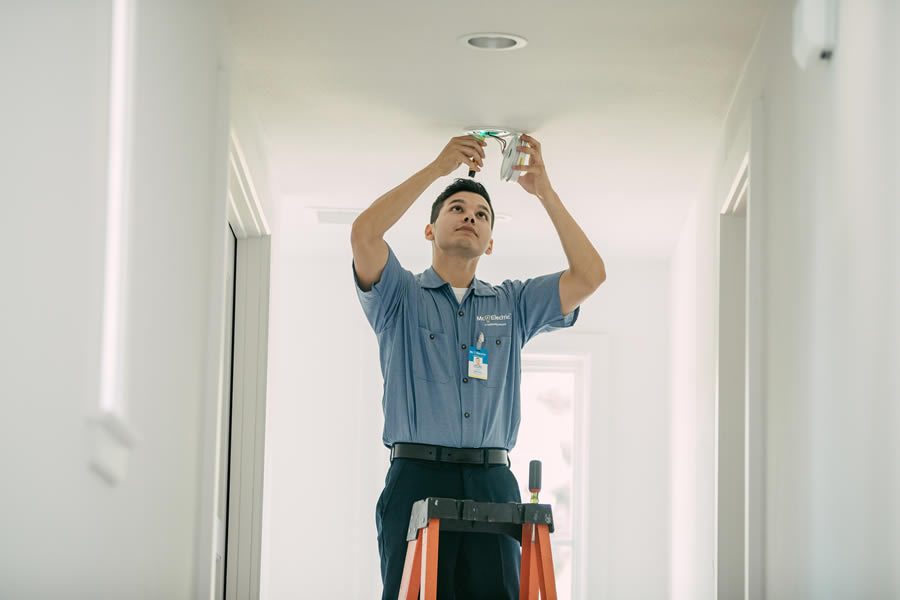Call This Wednesday to Get 25$ OFF
24-Hour Emergency Electricians in San Antonio
Call this Wednesday to Get 25$ OFF
Need an Electirician?
SCHEDULE SERVICE NOWCall Us Now
210-955-9600Call This Wednesday to Get 25$ OFF
24-Hour Emergency Electricians in San Antonio
Call this Wednesday to Get 25$ OFF
Need an Electirician?
SCHEDULE SERVICE NOWCall Us Now
210-955-9600
From charging our phones to powering our appliances, we all rely on electricity in our homes and workplaces. Electrical wiring is what keeps everything running smoothly, but how many of us have given thought to the types that exist?
Whether you're planning a renovation, troubleshooting an electrical issue, or just curious, it’s important to understand the different types of wiring that bring power to your home or business.
In this brief article brought to you by Mr. Electric, we investigate just that. If you are considering an electrical wiring installation or repair, then call Mr. Electric to hire a certified electrician.
Let’s start with the basics. Electrical wiring refers to the network of wires and cables that carry electrical power from your main service panel (breaker box) to outlets, switches, and appliances throughout your home or building. Without these wires, electricity would have no path to travel.
While all wiring essentially performs the same function of transporting electricity, there are several different types with each designed for specific uses and environments.
Also known as Romex (a popular brand), NM cable is the most commonly used type of wiring in residential homes. It consists of two or more wires wrapped in a plastic sheathing. Inside, you’ll find one or more insulated "hot" wires (usually black or red), a neutral wire (white), and a bare copper grounding wire.
Armored cable, often referred to as BX cable, consists of wires wrapped in a flexible metal sheath. The metal casing provides extra protection, making it ideal for areas where wiring may be exposed to potential physical damage.
When electrical wiring needs to be buried underground, UF cable is the answer. It’s similar to NM cable but is designed with a tougher, waterproof jacket to withstand moisture, soil conditions, and other environmental factors.
Similar to armored cable but with more robust protection, MC cable features a metal jacket and internal aluminum or copper wires. It’s commonly used in commercial and industrial applications.
Low-voltage wiring is used for systems that require less power, such as doorbells, thermostats, and home security systems. These wires are usually thinner than regular electrical wiring and are rated for specific low-voltage tasks.
There are a few things to keep in mind when considering wiring options. The first is voltage and load. Consider the electrical demand of the devices or systems being powered. Will the wiring be for high-powered appliances, low-voltage lighting, or standard outlets?
It’s also important to consider the environment. Is the wiring going to be installed indoors, outdoors, or underground? Your environment will determine whether you need standard NM cable or something more durable like UF cable or armored cable.
Finally, and especially if you are considering a whole house electrical wiring, you should think ahead. It’s worth considering not only what you need now but what you may need in the future, like adding extra outlets or upgrading to smart home technology.
Whether you need a professional installation or emergency electrical repair service, the certified electricians at Mr. Electric are here to help.
Call or message us at any time of the day to get in touch with a uniformed electrician.